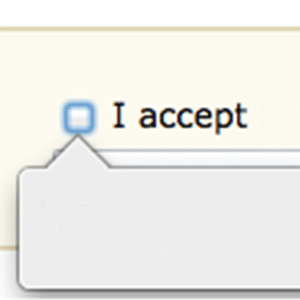Being cyber aware is a hard trait to acquire, especially when we have other online qualities and habits deeply ingrained in our system. These habits have become a norm, and almost every individual ignores the threats they pose. Here is a list of things that you might be doing every day which are a threat to your online security.

Lo mejor de nuestros dispositivos es que hacen un mejor trabajo a la hora de recordarnos cuándo hay actualizaciones disponibles. Dado que los fallos y vulnerabilidades se detectan con regularidad, también lo hace la disponibilidad de actualizaciones. Por lo tanto, recibirás un montón de notificaciones sobre una actualización en particular hasta un punto que te parecerá molesto. ¿Qué hará a continuación? Silenciar las notificaciones. Este hábito significa que te perderás actualizaciones y parches importantes, por lo que tu sistema o tus aplicaciones estarán en peligro si se explota la vulnerabilidad que contienen.
Dejar el dispositivo desatendido
This applies to computers and smartphones; most people are victims of this habit. For example, you have been working all day, and you decide its time to take a quick break or even get some fresh air. Since it’s a short break, you forget to lock your computer as you do not want to enter your long password again. But it takes a moment for a malicious person to load malware into your device and begin to wreak havoc. Before leaving your device behind, make sure it’s locked.

Almost every service, account or programs that are on the internet have a section of Terms of service. For instance, when signing up for let’s say a social media account, there’s a checkbox/button below these words, “by continuing, means you have read and understood our terms of service.” Usually, there’s a link in the words, ‘terms of service’ that when clicked, will open the terms of service page. But since you might be eager, and in a hurry to use the service, all you end up doing is agreeing to what you don’t know. You risk your online data since some of the services have stated in their terms that they have a right to retain your data, track you and even may allow third parties to access it. Other services collect your device fingerprints, and other can delete your account without prior notice.
Utilizar los nombres de usuario de las redes sociales para registrarse en otros sitios
When presented with; register using your email or with Facebook/Google, you are likely to choose with Facebook/Google or another available social media site. This is understandable because using social media logins is convenient, faster and you don’t have to remember passwords. But there are two major problems with this type of login.
First, if your social media account gets hacked, the hackers will have access to all the other linked accounts. Second, the other accounts also have partial access to your personally identifiable information which you would like to keep private elsewhere.
Publicación descuidada/accidental
Seguramente habrás oído esta frase: "Internet nunca olvida". Esto es cierto, ya que lo que publiques en Internet permanecerá en la red incluso después de que lo borres. Puede que no aparezca en el sitio que has publicado, pero estará disponible en otras cachés de Internet. Por ejemplo, los memes. Si publicas una foto haciendo algo gracioso pero inapropiado, algún creador de memes la ve y hace tendencia tu foto en todo el mundo. Esto significa que borrarla de un sitio no servirá de nada. Así que, si no quieres que tu información esté en la red, ni se te ocurra publicarla.
Not using a VPN
The P in VPN stands for Private; a VPN will not only keep your information secure, but it will also keep your identity hidden when you are online. This minimizes a lot of internet threats from malicious people that are after your data.


